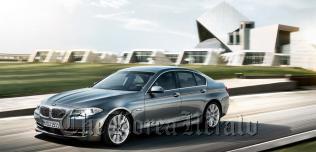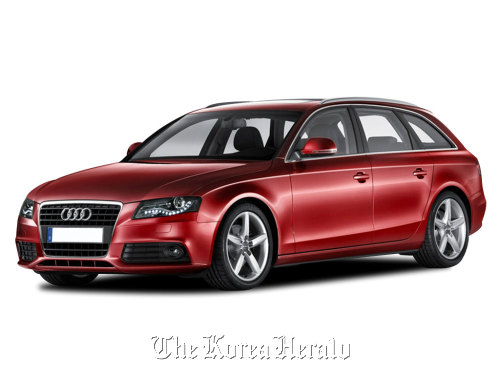Diesel-powered mid-sized sedans are growing ever more popular among a slew of new models launched this year.
Diesel cars took up more than 30 percent of the import market share for the first time in July, Korea Auto Industries Corp. Association said.
The economically cheaper option has been in high demand as oil prices continue to rise.
Diesel cars took up more than 30 percent of the import market share for the first time in July, Korea Auto Industries Corp. Association said.
The economically cheaper option has been in high demand as oil prices continue to rise.

Among the 60,523 imported cars sold here in the January-July period, diesel models took up 34.4 percent, or 20,741, up 9 percent from sales in the preceding half year. Gasoline-powered models now account for 62.3 percent of import market share.
“Diesel powered models are proven to be cheaper and a more fuel-efficient. It has also become more popular in recent months because newer models came with less noise and improved driving,” a KAICA official said.
Diesel prices averaged for April-July period stood at 1,767 won per liter, 167 won cheaper than that of gasoline, 1,935 won per liter, according to the Korea National Oil Corp. The difference is smaller compared with the figure from last year, 207 won, but the official said prospects for higher oil prices in the medium-term had more drivers turn to diesel-powered models.
The most popular import car in July was diesel variant of BMW’s 502d.
The latest 5 Series model of BMW lineup offers maximum performance at just 4.9 liters of fuel over 100 kilometers and a CO2-emission level of 129 g/km.
“Our diesel models started to outsell our gasoline models. A total of 1,706 320d diesel cars were sold last year, almost double the number for 320d gasoline,” a BMW official said.
“The trend has been clearer so far this year,” he added.
The 520d and 320d of BMW, along with Volkswagen Golf 2.0 TDI diesel, CC 2.0 TDI Blue Motion diesel all made it into the top 10 most popular imported cars in the first half of this year.

Customers now have a wider option to choose from. Audi Korea released diesel version of its flagship A4 2.0 TDI which uses just 4.8 liter per 100 kilometers, emitting 124 grams of CO2 per kilometer. BMW Korea released four new diesel types for its SUVs, including New X3 xDrive 30d, X3 XDrive 30d High, X5 xDrive 40d, and X6 xDrive 40d.
Hyundai Motor Co., the biggest local carmaker, said it will launch diesel variant of the i40 wagon, sedan with 1.7 liter diesel engines.
Diesel cars are the next big thing in other emerging markets as well. General Motors, Maruti Suzuki and Fiat in their Indian offices are pulling new diesel ranges by increasing plant capacities to meet the new demand for diesel cars. GM in July launched the diesel variant of its Chevrolet Beat in India and plans to introduce similar variants of Spark, Aveo UVA and Aveo sedan.
“Diesel models cost a couple of thousand dollars more on average because of pricey components in them such as common rail systems, but its superior fuel efficiency makes it more attractive in the long run,” an official at Mercedes Benz Korea said.
By Cynthia J. Kim (cynthiak@heraldcorp.com)



![[Herald Interview] 'Amid aging population, Korea to invite more young professionals from overseas'](http://res.heraldm.com/phpwas/restmb_idxmake.php?idx=644&simg=/content/image/2024/04/24/20240424050844_0.jpg&u=20240424200058)












![[KH Explains] Korean shipbuilding stocks rally: Real growth or bubble?](http://res.heraldm.com/phpwas/restmb_idxmake.php?idx=652&simg=/content/image/2024/04/25/20240425050656_0.jpg&u=)

